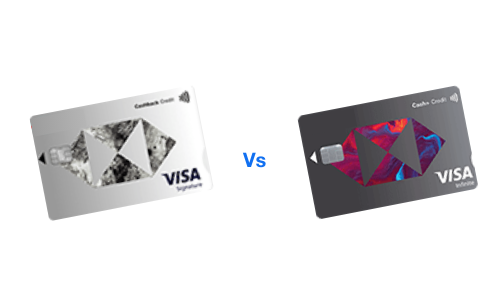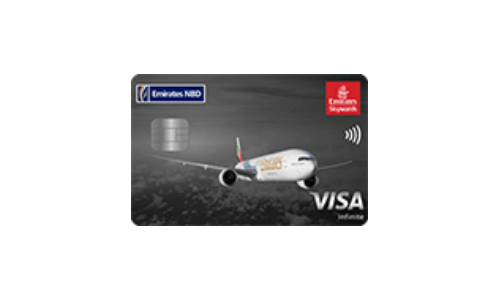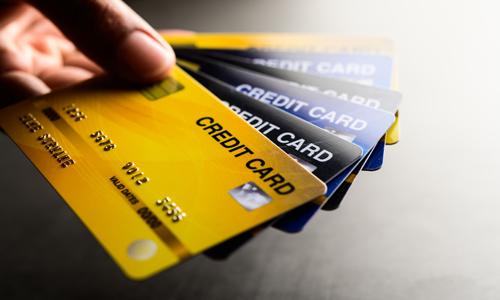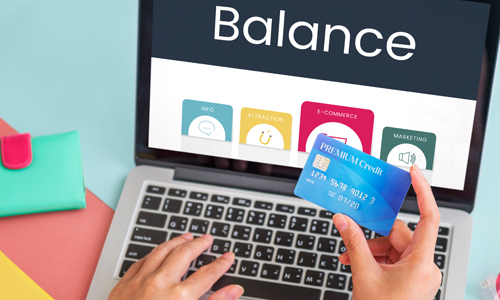How to Understand Your Credit Card Billing Statement?

Owning a credit card means receiving an extensive bill at the end of the month. The billing statement of credit cards is a summary of how you have utilized your card for a billing period. A lot of people have trouble understanding the charges added to this bill. It is filled with numbers, percentages, and terms that play a significant role in calculating the total balance on your credit card. These billing statements are generally composed of one or two pages full of information like what were your purchases, how much was paid the previous month, the due date of the payment in order to avoid penalties, among many others.
The information displayed on your billing statement says a lot about your spending habits. As a result, it is quite important to be aware of all the charges and additional fees applicable to your credit card bill to avoid paying any unnecessary costs. It helps to read your billing statement thoroughly to find any billing errors and report them timely. It is also important to fully understand each component of your billing statement to be a responsible user of credit cards.
We have tried to simplify the information displayed on your billing statement so read on:
Account Summary
The summary of the account is the first section you see on your billing statement. It is an overview of the status of your credit card account and contains some of the most important pieces of information. One can find the fees as well as interest charged, the current balance, and the amount of credit available. Apart from this the date when your billing cycle closes is also mentioned in the account summary.
Any transactions made once the billing cycle closes will not be reflected in the credit card statement. But in case you want to see your recent activities, you can log in to your account online.
Payment Information
This section of your credit card billing statement mentions the payment you have to make in order to avoid incurring payment penalties. It includes the due date of your payment along with the minimum payment that needs to be made. In case of default in timely payment or if you pay less than the minimum payment, you will have to pay a late fee. The consequences can be even more severe in some cases. Your rate of interest can be increased if you miss a payment by sixty days or more. It is therefore imperative to be punctual with your repayment schedule.
This section also includes the late payment warning, letting the credit card holders know exactly the consequences they will have to face if the company receives late payment.

Late Payment Warning
The credit card providers are required to have a late payment warning disclaimer on the billing statement. It includes the warnings against late payment along with its consequences. It clearly lists out the amount charged for late payment as well as the penalty APR that will be applicable to your account in the event of not making the minimum payment by the mentioned due date.
A lot of people find it confusing to see the late payment warning on their card statement despite making regular payments. This warning is mentioned on every billing statement regardless of the credit card holder’s current payment status. It does not signify that you have defaulted in any manner. If, however, you have previously been late on a payment, the Payment Information segment will mention the previous due amount.
The credit card company cannot increase your APR in case of late payment unless one has missed the due date by sixty days or we can say if you are sixty days delinquent on the payment. This means your APR can not be increased to the penalty rate unless you have missed two consecutive payments. Remember, this increased APR rate once it is applicable, will not go back down dauntless you make six subsequent payments on time.
This section does not mention the action of credit reporting done as a consequence of untimely payment. Once you have surpassed the due date by thirty days, your past-due account status will be reported to the credit bureau. This will be rectified once you have brought your account current again. The account status then will show that you have caught up on your payments. However, your credit report will continue to display the history of late payment for a period of seven years and this can prove to be disastrous for your credit Score.
Minimum Payment Warning
Just like the late payment warning, credit card providers are bound to display a minimum payment warning on the billing statement as well. According to this disclaimer, you are duly informed about the time period it will take in order to pay off your balance if you make just the minimum payment. Also, the total amount you have to pay along with the interest rate charges is mentioned in this section.
This section is also supposed to include the monthly payment that is required to pay off the balance in a period of 36 months or 3 years. Apart from this the total amount you have to pay if you make that payment.
In case you pay out the minimum payment for every period, you might have to pay a higher rate of interest and at the same time, it might take you much longer to completely pay off the balance.
The second part of this section shows the three-year payoff payment. It lets one know about the amount of savings they will receive by increasing the payment.
Credit Counselling Notice
The billing statement of your credit cards have to necessarily provide the contact information of a non-profit credit counselling agency to the cardholders. It is done so that the customer can contact them in case they are facing trouble in making their payments. Don’t shy away from seeking help as it can indeed be quite a confusing process.
The credit counselling aims to offer long-term solutions to the problem of credit card repayment. If, however, your financial troubles are short-term, it is better to first call your card provider to check if you can simply delay your payment by a few days without incurring any penalties.

Changes in Your Account
All the changes in your account for example, the increased rate of interest, the annual fee etc, will be displayed on the front page of your card’s billing statement. These changes will be mentioned alongside the date from when these changes will be effective.
Your credit card provider will also mail the said changes made separately. Therefore, it is important to read the details carefully in the statement as well as any other form of correspondence.
Payment Coupon: Another important thing in your card’s billing statement is a payment coupon. You can use this coupon along with your payment. This enables the card’s issuer to process the payment efficiently and at the same time apply it to the correct account. While making the payment all you have to do is detach this coupon from the billing statement and place it alongside the payment in the envelope.
Notification for Change of Address
This section is helpful if your mailing address is subject to change. It is imperative to inform your credit card provider about any changes in the address to as to ensure that the communication is not disrupted. New address change update will make sure to get your future statements promptly. Put a tick across the box and write the correct address at the back of your billing statement. Make sure to give your card issuer a call as well as update the address online to avoid any hassle later.
Credit Card Provider’s Payment Address
If you are making your payment using the envelope that contained your credit card’s statement, be careful to fold the statement in a way that the card issuer’s payment address is visible through the envelope. In case you are using a different envelope that does not have an address window, copy the address with precision.
Card providers usually have a different address for processing payments so, be careful to note the right address to avoid any payment error later.
Transactions
This section requires the most careful review on your behalf. Be meticulous in going through all your transactions mentioned in the billing statement. Cross check all the transactions and the amounts you have paid for each item on the list. In case you spot an error or discrepancy, report it to you card provider immediately. It could be an instance of fraud so don’t waste any time.
This section mentions the transactions from your recent billing cycle that is completed. If you wish to refer to previous transactions, you might have to review older billing statements. Any transaction that is made after the end of your billing cycle will be listed in the next statement.
Interest Charge Calculation
This section displays the monthly interest that is calculated for each and every type of balance on your credit card separately. It includes all the purchases, the cash advances and balance transfers. Even the promotional APRs along with their expiry date will be mentioned in this section.
Total Interest and Total Fees Paid This Year: This particular section of the billing statement mentions the total interest as well as the total fees you have paid in that year. The interest rate you are charged can be negotiated. But that is quite hard to do. Instead you can get a lower rate of interest by paying off your balance quicker. There are some fees that you cannot however avoid, for example, the annual fees. But there are certainly ways to avoid paying the late fees, and cash advance fees among others.
Rewards Summary
If you are eligible for a rewards program that comes with your credit card, this section gives a summary of the rewards earned by you. The rewards balance, any rewards earned in this period and the rewards that can be redeemed are all mentioned in this part of your billing statement.
The Bottom Line
Credit cards are a blessing to have. They make life so much more convenient. However, don’t forget to repay your creditors timely to avoid damages to your credit score. Remember, that any default in payment will mar your credit history for a significant amount of time, dampening any plans you have to borrow money in the future.
More From Credit Cards
- Recent Articles
- Popular Articles
















